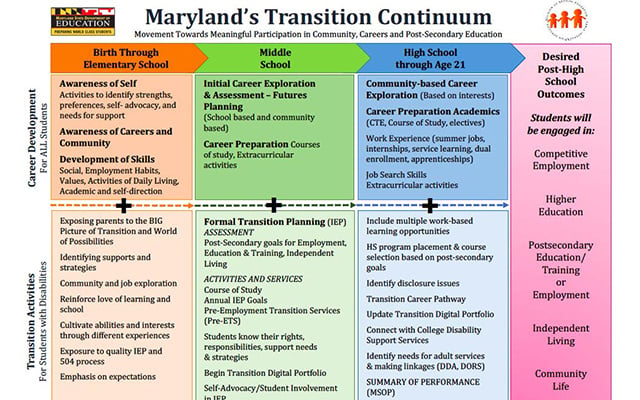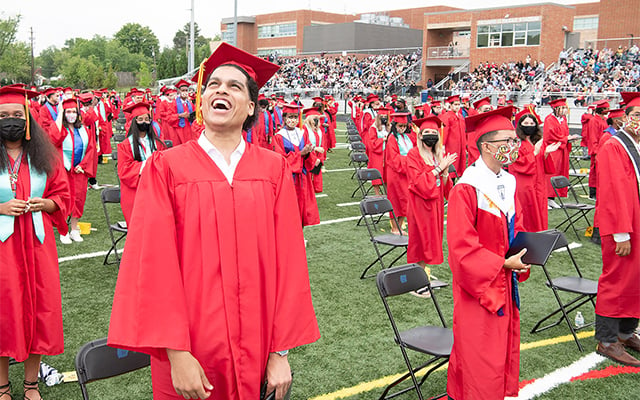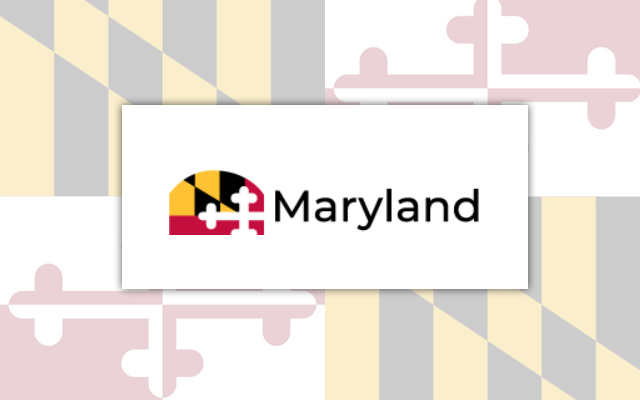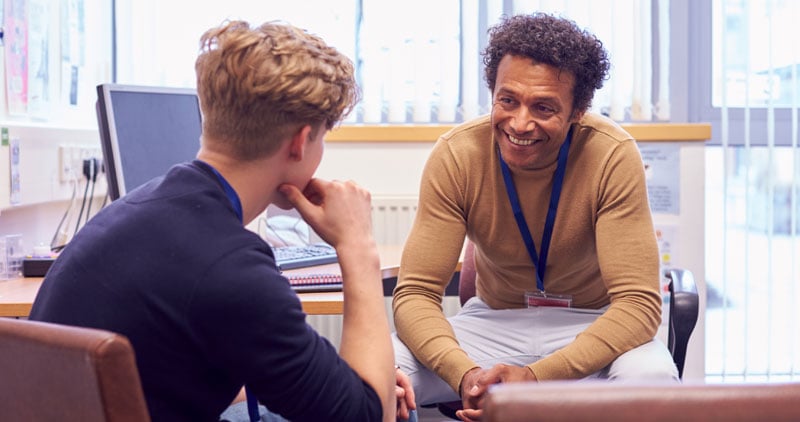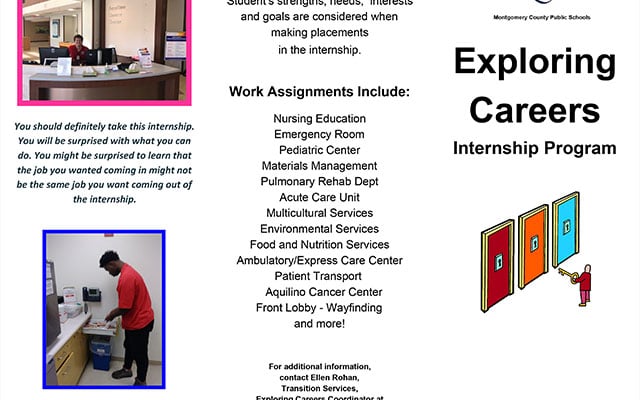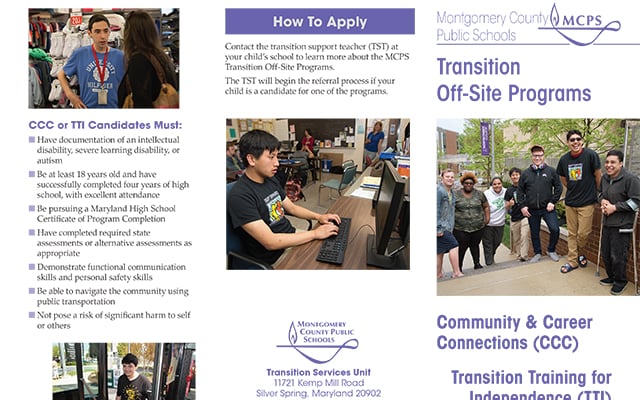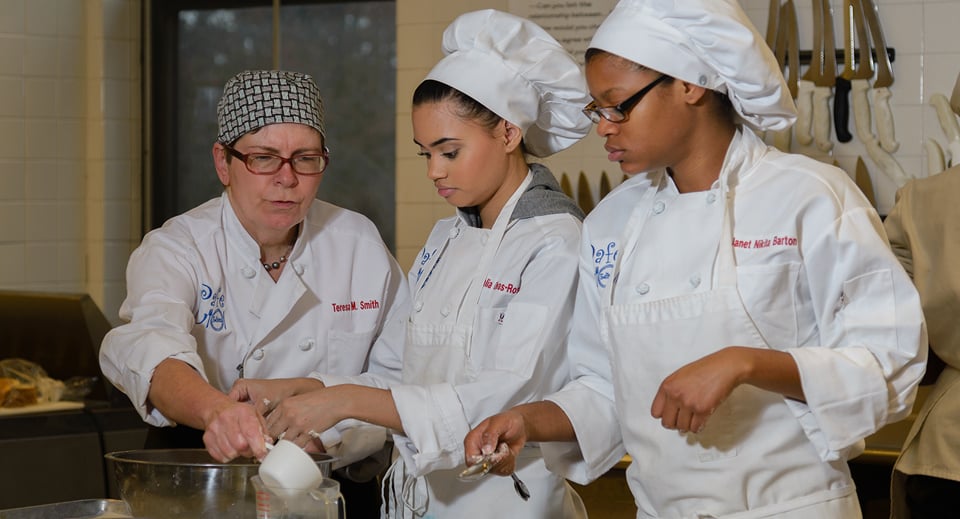
Mark your calendars for these UPCOMING EVENTS

The Arc- Respite, Resource and Health Fair
DATE: Saturday, April 5, 2025
TIME: 10 a.m.- 2 p.m.
WHERE: Activity Center at Bohrer Park
More information can be found HERE
Click HERE for Flyer in SPANISH

Joan Karasik Resource Fair
DATE: Sunday, April 6, 2025
TIME: 1-4 p.m.
WHERE: Montgomery College Rockville Campus: PE Building, Theatre Arts and Cafeteria
FREE PARKING and NO ADMISSION required
TIPS Meeting
TOPIC: Housing
~~~~~~~~~~
March 19, 2025, 7:00 PM
~~~~~~~~~~~
VIRTUAL- Register HERE
You can find all past meeting RECORDINGS and HANDOUTS HERE
MCPS 2025 Summer Internship flyer
MCPS 2025 Summer Internship Website
Summer School Internship Registration 2025
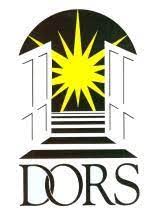
The MCPS DORS Pre-ETS Program will provide diploma-bound rising 10th and 11th grade high school students with IEPs an opportunity to engage in college and career exploration, develop employment readiness skills, navigate the community safely and participate in a Montgomery College Summer Youth Program course.
Please see important details about the program below:
To register for this program click HERE
The DORS Pre-ETS 2025 flyer can be found HERE.
The transition services unit provides stakeholders with the necessary resources, tools, supports and professional development needed to ensure students a successful transition into further education, employment, and full participation in their community
Office Location:
11721 Kemp Mill Road
Silver Spring, Maryland 20902
Phone: 240-740-5900
Fax: 301-649-8018
